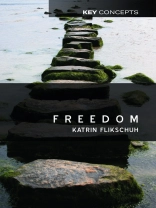In this engaging new book, Katrin Flikschuh offers an accessible
introduction to divergent conceptions of freedom in contemporary
liberal political philosophy. Beginning with a discussion of Isaiah
Berlin’s seminal distinction between negative and positive liberty,
the book goes on to consider Gerald Mac Callums alternative proposal
of freedom as a triadic concept. The abiding influence of Berlin’s
argument on the writings of contemporary liberal philosophers such
as Robert Nozick, Hillel Steiner, Ronald Dworkin and Joseph Raz, is
fully explored in subsequent chapters.
Flikschuh shows that, instead of just one negative and one
positive freedom tradition, contemporary liberal thinkers
articulate the meaning and significance of liberal freedom in many
different and often conflicting ways. What should we make of such
diversity and disagreement? Should it undermine our confidence in
the coherence of liberal freedom? Should we strive towards greater
conceptual and normative unity?
Flikschuh argues that moral and political disagreement about
freedom can often be traced back to differences in underlying
metaphysical presuppositions and commitments. Yet these differences
do not show liberal freedom debates to be confused or incoherent.
On the contrary, they demonstrate the centrality of this
philosophically elusive idea to the continued vitality of liberal
political thinking.
Tabela de Conteúdo
Introduction:.
Approaching Liberal Freedom.
Chapter 1:.
Isaiah Berlin: Two Concepts of Liberty?.
Chapter 2:.
Gerald Mac Callum: Freedom as a Triadic Concept.
Chapter 3:.
Robert Nozick: Negative Freedom and Property Rights.
Chapter 4:.
Hillel Steiner: The Natural Right to Pure Negative Liberty.
Chapter 5:.
Ronald Dworkin: Freedom as an Aspect of Equality.
Chapter 6:.
Joseph Raz: The Social Value of Personal Autonomy.
Conclusion:.
Liberal Freedom – Positive, Negative, Either or
Neither?.
Bibliography
Sobre o autor
Katrin Flikschuh is Lecturer in Political Theory at the London School of Economics and Political Science.












